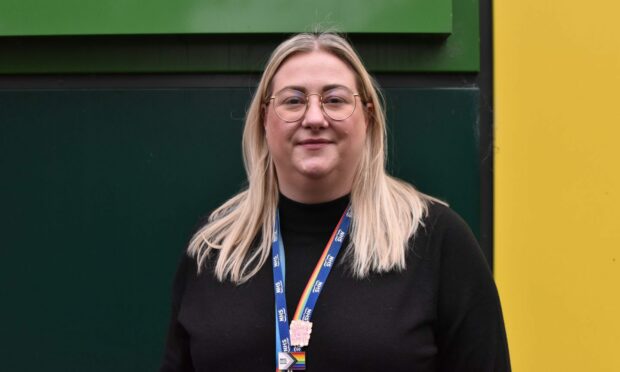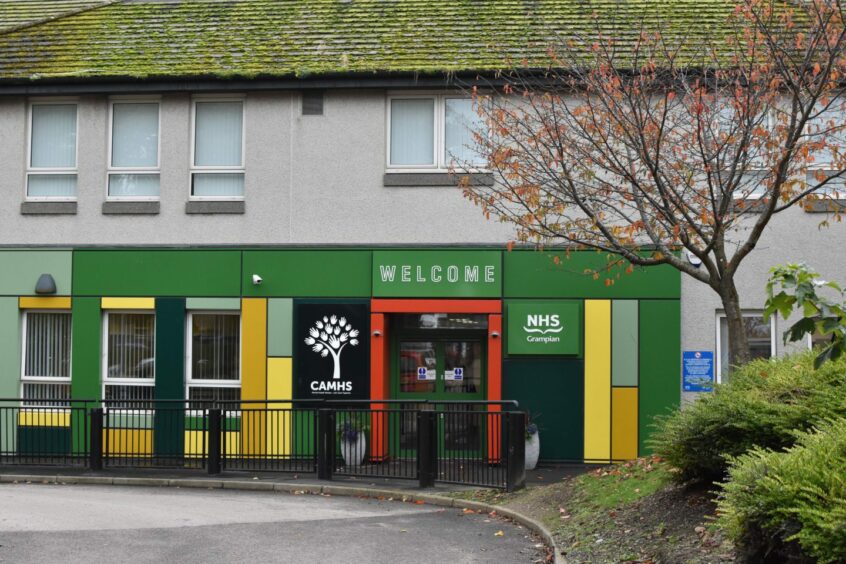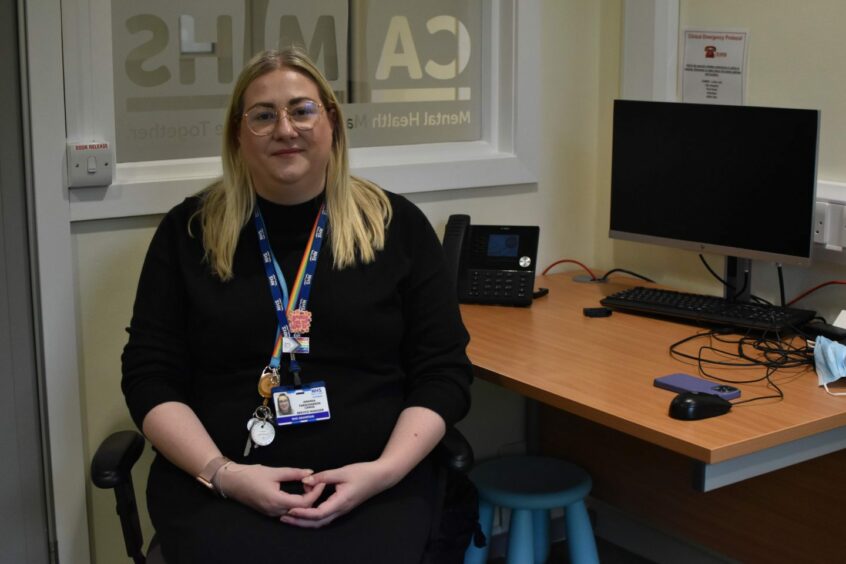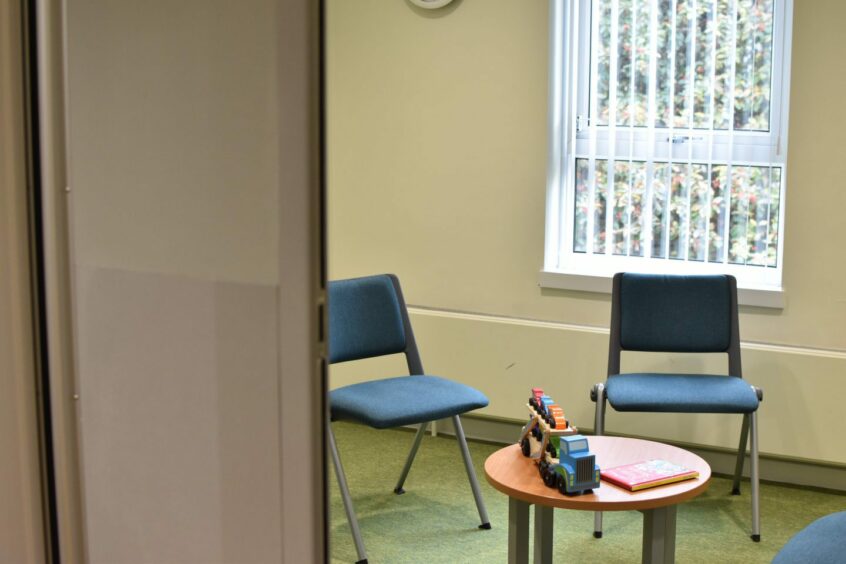Tucked away off Aberdeen’s busy King Street is a building of many different colours.
Once you spot it, it’s obvious. But many will hurry past, unaware of the work carried out inside to support children and young people with their mental health.
Bold greens, reds and yellows greet visitors to the Child and Adolescent Mental Health Services (CAMHS) building on Urquhart Road, before they step inside to a more muted reception.
Dotted with toys and comfy seating, staff have tried to create a home-like atmosphere.
Many services remain online post pandemic, which the team – who cover the whole of Grampian – say many of their patients prefer.
But Amanda Farquharson, CAMHS service manager at NHS Grampian, said the changes brought on by Covid run far deeper than virtual appointments, with a rise in the number of cases and their complexity.
CAMHS Grampian helps assess and treat young people struggling with emotional, behavioural or mental health difficulties, from baby to 16.
“In the last year, we had 4,050 patient referrals,” Mrs Farquharson said.
“I’m not shocked by that figure any longer and I think that’s because we’re following a national trend.”
Children and young people becoming unwell ‘quicker and quicker’
There is a range of professional support for referrals, and many cases will see different people during their time with the service – ranging from psychologists, nurses and occupational therapists.
“We see more unwell children and young people than previously,” Mrs Farquharson added.
“I think that in the last two years, there’s been a lot that’s happened for children and young people.
“There has been the pandemic and the effects of what that means with them. And then lockdown too, that can be really tricky.
“I think it’s multifactorial, I don’t think it’s just one thing that is the spike or the impact.
“I think that if you add them all in together, the effects of that on a child and young person, as adults, it’s been hard for us to manage some of that.
“So for children and young people, they’re the vulnerability of that. That’s what we’re seeing now and we’ll continue to probably see that.”
Mrs Farquharson believes the cost-of-living crisis will also add to the worries of many young people, who may feel the pressure at home.
She said: “I think that all of these things together collectively is why we see the complexity increasing and children young people becoming more and more unwell quicker.
“We don’t know what the future may look like in terms of what we will see.
“So that’s why we’re constantly having to evolve, and to be able to work better with children and young people as that develops.”
Trying to avoid them ‘hitting that crisis point’
Referrals may also be on the up due to ongoing efforts to explain how services work and breaking down the stigma surrounding mental health within schools and communities through staff training and offering more resources to parents and carers.
Mrs Farquharson, 39, said that during the pandemic, support was limited and that the team are determined to help before young people “hit that crisis point”.
“We’re actively trying to engage with our partners to try and think about those areas so that we can support children and young people sooner,” she said.
“That way they’re hopefully not coming to us at their most unwell. If they’re coming to us, it’s more planned, and we can support them in a planned way.
“Hopefully, by doing that, then what we can avoid avoid a child and young person hitting that crisis point.
“That’s not to say that won’t happen, and we’re there for that but what we want to do is be able to try and support them earlier as much as we possibly can.”
How to get help from CAMHS
- Young people can be referred to CAMHS through their GP, school or family.
- Their first appointment will be scheduled within 18 weeks, a target that CAMHS has been working hard to meet in recent years.
- The young person will be asked to “opt in” and will then undertake an assessment to determine what support is required and to shape a plan, outlining the next steps.
- Possible action could be group work, one-to-one sessions or even support groups for parents.
- This is the process for about 80% of referrals, with the remaining 20% classed as urgent for those who are “severely unwell” or need intervention.




Conversation